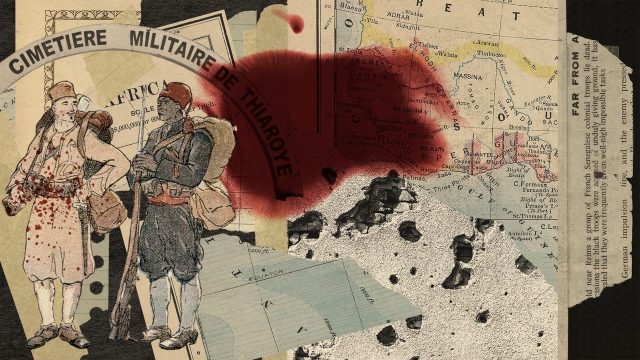
A new report into the 1944 Thiaroye massacre of African infantrymen by French soldiers in Senegal found that the shooting over pay disputes was “premeditated”, said France24. Substantial evidence surrounding the attack was covered up by French authorities in the months and years after, the report concluded.
The events at Thiaroye make it “one of the worst massacres during French colonial rule”, said Le Monde. Its effects are still felt, and mark a point of tension in relations between the two countries.
‘Significant’ new details
Today, “questions remain” about the number, identities and burial locations of soldiers who were killed, with the modern estimates of deaths 10 times higher than the official 35 recorded at the time, said Le Monde.
Documents of the time show that around 1,300 soldiers from several west African countries, who had been called up to fight for France, were transported from France to a camp in Thiaroye, Senegal, following liberation from German capture in 1944.
Upon arrival, “discontent mounted” over owed back pay and unmet “demands to be treated on a par with white soldiers”, said Radio France Internationale.
The soldiers were due to be paid a “quarter of the back pay” in mainland France, and “the rest” upon their arrival in Africa, experts told Afrique XXI. After a month with no sign of payment, and the soldiers’ refusal to leave the camp until they had been fairly recompensed, “tense” meetings took place between French commanders and the African infantrymen.
Days later, authorities opened fire, accusing the “unarmed” soldiers of “mutiny”, though only one Frenchman suffered a gunshot wound: a “significant detail” which “seems to corroborate the innocence of the accused”.
‘Smouldering tensions’
The 301-page report was submitted to Senegalese President Bassirou Diomaye Faye last week, and “urges France to formally apologise to the riflemen’s families and communities”, said France24. There is a “significant absence” of source evidence linked to the massacre stored in Dakar, due to documents being transferred to France, the report showed. Excavations at a Thiaroye cemetery have been under way since May.
Further results from the investigation, led by historian Mamadou Diouf, threaten to “reignite smouldering tensions between France and the former colony”, said The Associated Press.
In June, Biram Senghor, the son of one of the “Tirailleurs Sénégalais”, or Senegalese infantrymen corps, “lodged a complaint against the French state”, claiming it was concealing information about his father’s death, said Le Monde.
“They lied to his family. They pretended Senghor was a deserter, that he did not die in Thiaroye, and then they admitted that he had,” Senghor’s lawyer told the outlet. “They need to tell us where his remains are.”
France first acknowledged Thiaroye as a “massacre” in November 2024, just days before the 80th anniversary of the shooting. The killings have risen to public consciousness, and have been a “point of contention” between the two countries, said Damian Zane on the BBC. This acknowledgement came at a time where Faye – who was elected eight months earlier – was considering a “reassessment of the countries’ relationship”, added the broadcaster.
Despite praising President Emmanuel Macron’s “courage” for acknowledging the massacre, and believing “relations remain very good”, in July the Senegalese president welcomed the removal of French troops from Senegal, said Le Monde. “What country can have foreign troops on its soil and still claim independence?”
A new investigation found the 1944 Thiaroye attack on ‘unarmed’ African soldiers was ‘premeditated’, and far deadlier than previously recorded






